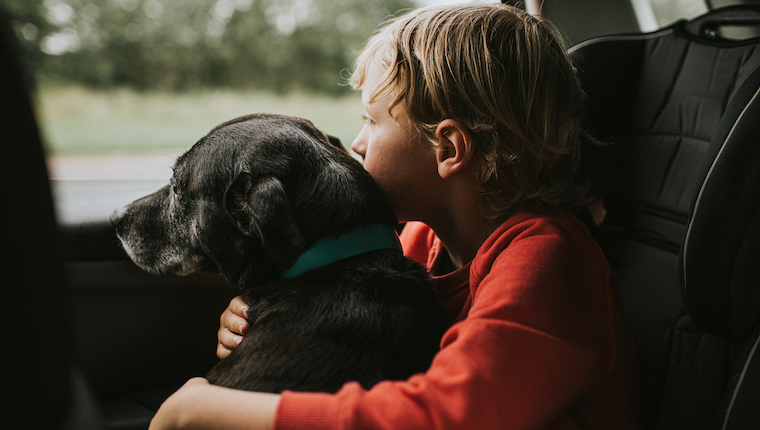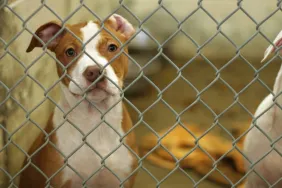Shelters nationwide are seeing an influx in pet surrenders due to the cost of living crisis and uptick in puppy births since the pandemic.
Thousands of Americans have made the heart-wrenching decision to give up their beloved animal. “We had to make a decision about, you know, we need a roof for the baby and us,” Kathya Perec of Florida told CBS News.
Perec’s story resonates with many of the 90.5 million families with pets in the U.S.
Pet Parents Pinching Pennies
According to a report by petfoodindustry.com, the average cost of feeding household pets increased 9.1% in May compared to May 2021. That aligns with an overall year-over-year 9.1% cost of living increase cited by the Consumer Price Index.
Jessica Petalas, shelter director at Humane Indiana in Munster, told NPR she has seen a “huge influx” in pet surrenders.
“I’d say in the last eight years, this is the most I’ve ever seen. It’s at least doubled, and sometimes it’s triple the amount that we’re normally used to,” she told the publication.
Many shelters are at capacity and do not have the resources to meet increasing demand.
“A lot of people, the cost of housing has put them in a position where they have to move in with family or friends, and they can’t take their animals with them,” Petalas told NPR. “We do have some people that are still feeling some of the effects from COVID and being out of work, and they’ve been evicted. And there’s really a lack of pet-friendly housing available in our area.”
Experts say the rising cost of living isn’t the only factor at play. Thousands of people bought or purchased new pets in the early days of the pandemic. At the same time, many veterinarians and shelters had to suspend spay and neuter services temporarily. The result has been an uptick in kitten and puppy births over the past two years.
How to Get Help Paying for Your Pets
Animal welfare organizations nationwide offer support for pet parents in need, ranging from food assistance to veterinary care funding. The ASPCA also has Community Veterinary Clinics in many lower-income communities, which provide partially and fully subsidized preventative care for qualified patients.
Many veterinarians also provide financing options, and some offer sliding scale fees. Pet parents who are struggling can find resources via the Humane Society of the United States website.









